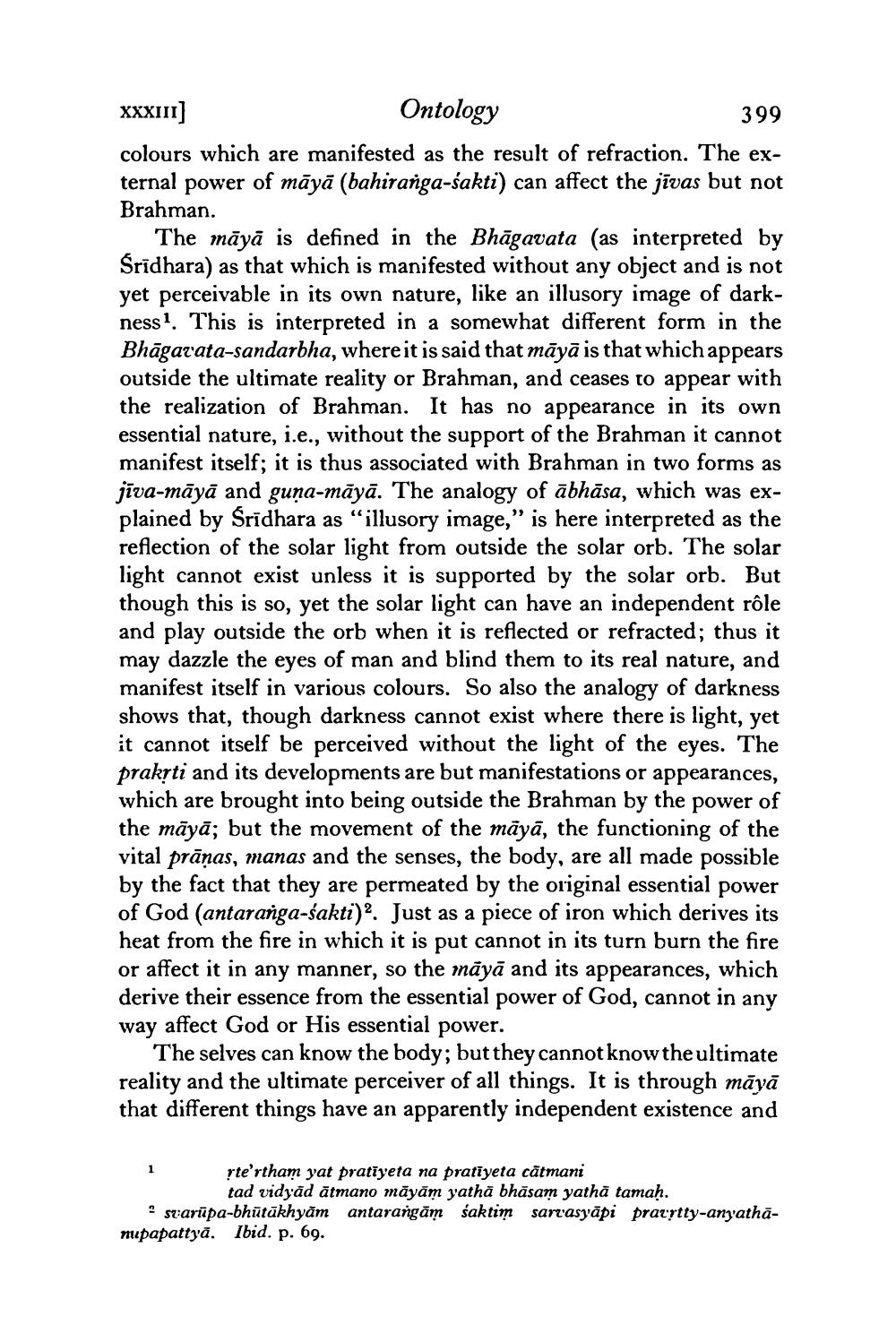________________
XXXIII] Ontology
399 colours which are manifested as the result of refraction. The external power of māyā (bahiranga-sakti) can affect the jīvas but not Brahman.
The māyā is defined in the Bhāgavata (as interpreted by Sridhara) as that which is manifested without any object and is not yet perceivable in its own nature, like an illusory image of darkness. This is interpreted in a somewhat different form in the Bhāgatata-sandarbha, whereit is said that māyā is that which appears outside the ultimate reality or Brahman, and ceases to appear with the realization of Brahman. It has no appearance in its own essential nature, i.e., without the support of the Brahman it cannot manifest itself; it is thus associated with Brahman in two forms as jīva-māyā and guņa-māyā. The analogy of ābhāsa, which was explained by Sridhara as “illusory image,” is here interpreted as the reflection of the solar light from outside the solar orb. The solar light cannot exist unless it is supported by the solar orb. But though this is so, yet the solar light can have an independent rôle and play outside the orb when it is reflected or refracted; thus it may dazzle the eyes of man and blind them to its real nature, and manifest itself in various colours. So also the analogy of darkness shows that, though darkness cannot exist where there is light, yet it cannot itself be perceived without the light of the eyes. The prakrti and its developments are but manifestations or appearances, which are brought into being outside the Brahman by the power of the māyā; but the movement of the māyā, the functioning of the vital prānas, manas and the senses, the body, are all made possible by the fact that they are permeated by the original essential power of God (antaranga-sakti)? Just as a piece of iron which derives its heat from the fire in which it is put cannot in its turn burn the fire or affect it in any manner, so the māyā and its appearances, which derive their essence from the essential power of God, cannot in any way affect God or His essential power.
The selves can know the body; but they cannot know the ultimate reality and the ultimate perceiver of all things. It is through māyā that different things have an apparently independent existence and
rte'rtham yat pratiyeta na pratiyeta cātmani
tad vidyād ātmano māyām yathā bhāsam yathā tamaḥ. svarūpa-bhūtākhyām antarangām saktim sartasyāpi pratytty-anyathānupapattyā. Ibid. p. 69.




